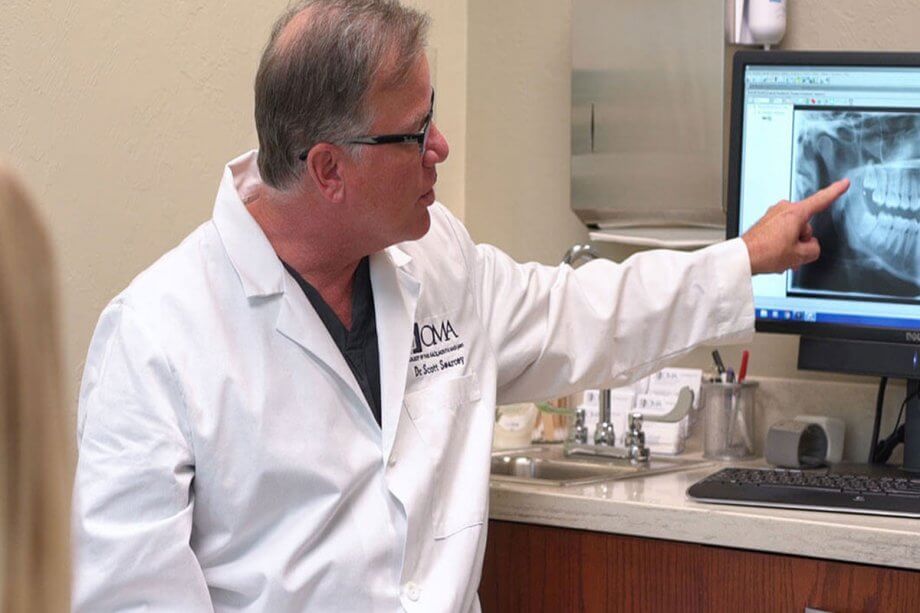Removing wisdom teeth was standard procedure in teenagers for decades, whether the teeth had issues or not. Today, wisdom teeth are carefully evaluated, but they are only removed if they show signs of current or future problems. If you have a wisdom tooth evaluation coming up, you may have a few questions. Here are answers to the top 10 most common.
1. What are wisdom teeth?
The third molars in the very back of the mouth, wisdom teeth got their name because they do not emerge until the late teens or early 20s. Most people have one in each back corner of the mouth, but some people do not have them all. A few people actually have extra teeth in that area.
2. Why are wisdom teeth removed?
Wisdom teeth are not routinely removed today, but they are the teeth most likely to develop serious problems that require removal. They may emerge in a twisted or sideways position. They may become impacted, or unable to emerge. They may even crowd other teeth out of the way. In addition, it is difficult to reach them with a toothbrush, making them more likely to develop cavities and infections.
3. When should wisdom teeth be removed?
If we recommend removal, it is best to have the surgery in your late teens. This results in a safer, more predictable surgery and faster recovery than you would experience later in life. We recommend scheduling removal for a time when recovery will have the least impact on your life, such as a school break.
4. How are wisdom teeth removed?
Most of the time, you are sedated for the procedure to help with your experience. We will thoroughly numb the teeth and surrounding tissues with a local anesthetic, and then use dental forceps to gently loosen and remove each tooth. We may need to cut a tooth into pieces for easier removal. We will use self-dissolving stitches, if needed, to aid in healing.
5. What should I expect immediately afterwards?
It will take a few hours for the local anesthetic to wear off, so your first priority is taking care not to bite your lips or tongue. We will give you a prescription for pain medication to take at home. You only have to take your medications as needed. It is far easier to stay ahead of pain than to get on top of it.
6. How long until I stop bleeding?
Most people experience mild to moderate bleeding after wisdom tooth extraction. Bite down on gauze as directed for the first few hours to encourage clotting. The bleeding should stop in several hours, although it is normal to experience oozing for the first 24 hours or so.
7. Does someone need to drive me home?
If you have sedation, an adult must drive you home. If not, then you may drive yourself. You will be uncomfortable, though, so if possible, we recommend having someone drive you home and stay with you for a few hours.
8. How long does recovery take?
The discomfort typically wears off in about 3 days, and the swelling is normally gone in a week or so. Ice the outside of your jaw frequently throughout the first 48 hours to reduce both pain and swelling. You may have some lingering sensitivity or mild bruising, but you should be entirely back to normal within 10 days.
9. How long will I be on medication?
It depends. Every tooth extraction and every patient is different. You will receive some pain medication to help and sometimes, antibiotics are prescribed. Remember to take the full course of antibiotics.
10. Why should I choose an oral surgeon instead of my regular dentist?
While regular dentists can perform extractions, keep in mind that oral and maxillofacial surgeons undergo 4-6 years of specific training in a hospital-based residency program after earning a dental degree. We perform oral and maxillofacial surgery every day, while regular dentists perform all sorts of dental procedures. Therefore, we are the best equipped to ensure that your wisdom tooth removal is as simple, safe, and easy as it can possibly be.
Ready to Get Started?
With five locations in Oklahoma, OMA provides a full range of simple and complex oral and maxillofacial surgical services. Contact the nearest location at 405-848-7994 (Oklahoma City), 405-292-8900 (Norman), 405-733-4296 (Midwest City), 405-341-4022 (Edmond), or 405-751-3312 (Lakeside) to schedule your initial consultation.

